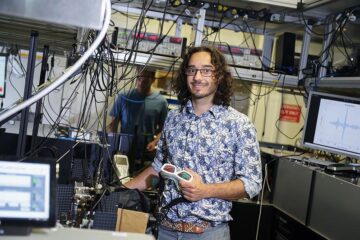Monoclonale Antikörper: Anti-human Chemokine Receptor 5 (CCR5 / CD195);anti-CCR5-pSer 337 (PKC-site); mAbanti-CCR5-pSer349 (GRK

Scientists at the Georg-August-University Göttingen produced different monoclonal antibodies directed against phosphorylation sites of CCR5. These antibodies have been demonstrated to exclusively recognise CD195 phosphorylated at Ser 337 or Ser 349. Human CD195 is a member of the G protein coupled superfamily of receptors, which acts as a receptor for a member of chemokines including RANTES and also serves as a co-receptor for the entry of HIV into cells. It plays a key role in regulating the activation and migration of leukocytes. CD195 is expressed by a subset of T-lymphocytes and by monocytes. Using these antibodies e.g. in combination with our indicator cell line ligand induced phosphorylation or dephosphorylation of CCR5 can be directly measured without using more indirect indicators like Ca++ concentrations.
This principle can be extended to measure activation states of G protein coupled receptors or activity of GPCR kinases generally, e.g. when screening for new agonists, antagonists or GRK inhibitors.
Weitere Informationen: PDF
MBM ScienceBridge GmbH
Tel.: (0551) 30724-152
Ansprechpartner
Dr. Jens-Peter Horst
Media Contact
Alle Nachrichten aus der Kategorie: Technologieangebote
Neueste Beiträge

Neue universelle lichtbasierte Technik zur Kontrolle der Talpolarisation
Ein internationales Forscherteam berichtet in Nature über eine neue Methode, mit der zum ersten Mal die Talpolarisation in zentrosymmetrischen Bulk-Materialien auf eine nicht materialspezifische Weise erreicht wird. Diese „universelle Technik“…

Tumorzellen hebeln das Immunsystem früh aus
Neu entdeckter Mechanismus könnte Krebs-Immuntherapien deutlich verbessern. Tumore verhindern aktiv, dass sich Immunantworten durch sogenannte zytotoxische T-Zellen bilden, die den Krebs bekämpfen könnten. Wie das genau geschieht, beschreiben jetzt erstmals…

Immunzellen in den Startlöchern: „Allzeit bereit“ ist harte Arbeit
Wenn Krankheitserreger in den Körper eindringen, muss das Immunsystem sofort reagieren und eine Infektion verhindern oder eindämmen. Doch wie halten sich unsere Abwehrzellen bereit, wenn kein Angreifer in Sicht ist?…

















